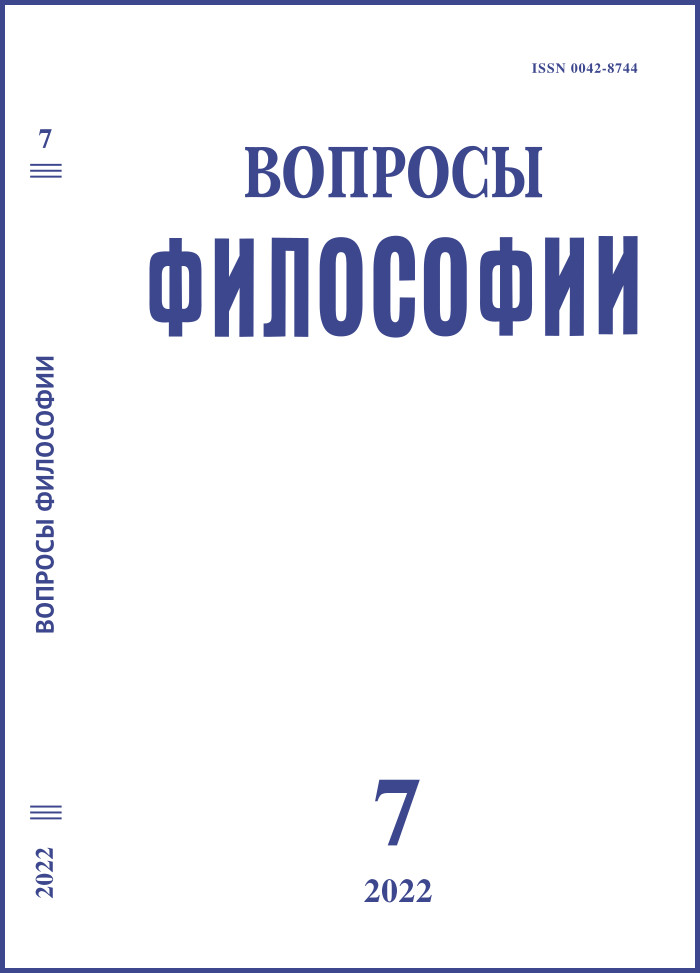Theoretic-empirical Substantiation of the Principles of the Methodology of the Post-non-classical Period in Science
DOI:
https://doi.org/10.21146/0042-8744-2022-7-109-116Keywords:
classics, nonclassics, postnonclassics, method, development, self-development, values, spiritual, knowledge, society, science, truth, patterns, levels, process, stimulus, discoveriesAbstract
The article presents in detail the methodology for studying the process of cognition, which is characteristic of the post-non-classical type of scientific rationality. In accordance with the concept of scientific rationality types of Academician V.S. Stepin, who singled out a new level of scientific analysis in connection with the emergence of a new type of self-developing systems in science, the author proceeds from the fact that the qualitative difference between post-nonclassical and previous types of rationality is its connection with the system of moral values of society, which is fundamentally new for science. The researcher of “human-sized” objects has to solve a number of ethical problems, defining the boundaries of possible changes in the system. Under these conditions, the ethics of science, which stimulates the search for truth, is constantly correlated with general humanistic principles and values. The author proposed a fundamentally new method of research, which makes it possible to observe the creative process during the experiment as a self-developing process of cognition, during which new patterns are discovered in the absence of an external stimulus. The principle of post-non-classics “the connection of truth with morality” finds its clear confirmation in the mechanism of creativity justified by the author as the development of activity on the initiative of the subject, provided the dominance of cognitive motivation in the structure of his personality. In fact, this is an experimental proof of the theory of V.S. Stepin. At the same time, the post-nonclassical theory provides a methodological justification for the mechanism of creativity identified by the author for the first time as the ability to develop activities on one’s own initiative.
Published
Versions
- 2025-02-06 (2)
- 2022-07-31 (1)

